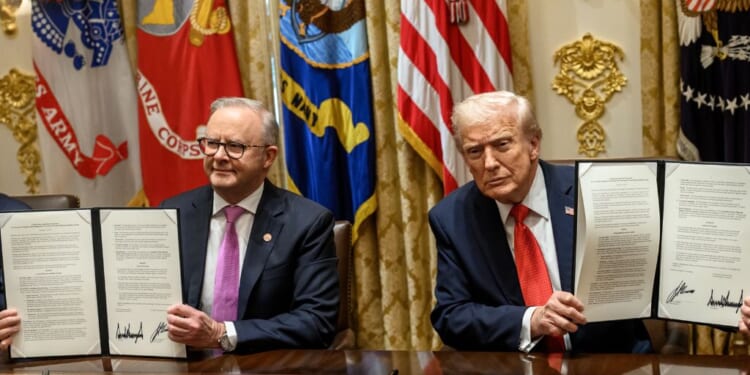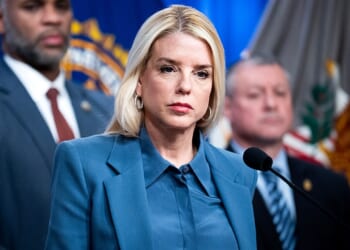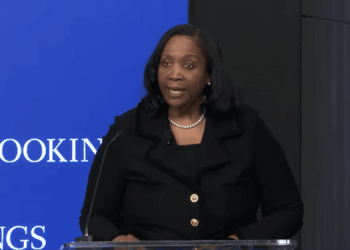The long-awaited bilateral meeting between President Donald Trump and Australian Prime Minister Anthony Albanese took place at the White House on October 20, 2025, delivering a diplomatic triumph for both nations.
The session, held from 11:15 a.m. ET in the Cabinet Room, focused on countering China’s dominance over rare earths and critical minerals while reinforcing the AUKUS defense pact.
Trump praised Albanese as a «great leader,» but the warmth faded when he publicly criticized Australia’s ambassador, Kevin Rudd, for past remarks.
This encounter, broadcast live and dissected globally, highlights Trump’s unfiltered style and the United States’ shift toward resilient supply chains.
Albanese arrived in Washington on the evening of Sunday, October 19, amid significant stakes. The summit marked the first in-person talks since Trump’s inauguration in January 2025.
Delayed by a canceled G7 meeting in June and a bilateral UN General Assembly session in September, the 10-month wait had fueled scrutiny from Australian media.
However, Albanese’s team framed it as a positive, constructive opportunity to deepen ties forged through phone calls where Trump called him «very good.»
The meeting began with greetings at 11:00 a.m. ET. Trump, flanked by Vice President JD Vance, Secretary of State Marco Rubio, and Defense Secretary Pete Hegseth, welcomed Albanese alongside Australian ministers Tim Ayres and Madeleine King.
Rudd, the former Labor prime minister turned ambassador, sat conspicuously nearby, a choice that sparked tension in the room.
As reporters entered, Trump launched into effusive praise. «Anthony has done a fantastic job,» he declared, calling Australia the United States’ best friend and promising big moves.
Albanese reciprocated, thanking Trump for the tour of the «new and improved Oval Office» and congratulating him on Middle East ceasefires, while emphasizing the alliance’s role in security and prosperity, hinting at «significant» advances in minerals and defense.
Tensions flared when an Australian journalist questioned Trump’s view on Rudd’s past criticisms. Rudd, a vocal Trump critic in 2020, had labeled him «the most destructive president in history» in now-deleted posts.
Spotting Rudd across the table, Trump retorted, «I don’t like you either, and probably never will.» Laughter filled the room as Trump joked, «But we’ll have a great relationship anyway.»
Trump promoted trade and military matters, emphasizing submarines, while Albanese highlighted rare earths, Australia’s mining expertise, and joint ventures to «seize opportunities» amid Beijing’s export restrictions imposed on October 9, 2025.
China controls 90% of global rare earth processing, vital for electric vehicles, defense technology, and renewable energy, a dependency Trump’s administration views as extortion.
The highlight emerged mid-meeting: a signed Critical Minerals Framework. Trump brandished the document, declaring, «In about a year, we’ll have so many critical minerals and rare earths they won’t know what to do with them.» Albanese detailed a $8.5 billion portfolio, including rare earth processing plants.
Each nation commits $1 billion over six months for immediate initiatives, unlocking $50 billion in recoverable resources. U.S. investments will flow to Australian firms like Lynas Rare Earths, boosting stocks ahead of the summit.
This pact builds on Australia’s $2 billion 2025 contribution to U.S. submarine shipyards under AUKUS. Signed in 2021 by Biden, the trilateral deal with the UK promises nuclear-powered submarines to Australia by the 2030s.
Trade was also key. Trump reaffirmed Australia’s low tariffs, exempting it from broader increases—up to 157% threatened against China. Albanese sought exemptions for pharmaceutical and tech industries, but Trump focused on reciprocity.»
Australia pays among the lowest,» he noted, ruling out immediate escalations. Hassett praised Australia’s «best mining economy,» positioning it as a model ally against Beijing’s dominance.
The session ended with a working lunch. Trump invited Albanese to the 2028 Presidents Cup in Melbourne, and Albanese extended an olive branch, calling the alliance «next level.»
Afterward, the White House fact sheet touted billion-dollar deals and NASA-Australian Space Agency aeronautics pacts.
This is a masterstroke by Trump: decoupling from China, securing defense advantages, and sidelining Rudd, a globalist thorn. Leftist critics decry Rudd’s snub as petty, overlooking how it exposes ambassadorial overreach.
Yet, results favor strength: Albanese’s Labor government’s reelection in Australia in May 2025 faced internal criticism for delays, but outcomes justify the wait.
As Trump eyes a late-October Xi Jinping summit, this deal bolsters U.S. influence in tariff wars. Australia diversifies from China, its top partner via iron ore and coal.
This summit cements Trump’s «America First» approach abroad: pragmatic pacts over endless aid.
About The Author


















